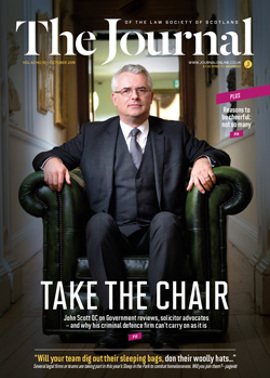HMRC called offside in referees case
In September, the First-tier Tribunal (FTT) found that English football referees were self-employed, rather than employees of Professional Game Match Officials Ltd (PGMOL). HMRC was unsuccessful in its argument that the 60 referees concerned were PGMOL employees and therefore PGMOL was liable for PAYE tax and employer national insurance contributions (NICs).
The ruling is relevant not just for football referees but also the thousands of officials of other sports and events. It is also an indicator that HMRC is challenging employment status for individuals in occupations which have historically been regarded as self-employed.
PGMOL and its referees
PGMOL is responsible for providing officials for all games played in the Premier League, English Football League and Football Association (FA) competitions.
A number (35) of “select group” referees, who officiate Premier League and Championship matches, are employed under full-time written employment contracts. However, the case concerned referees who officiate below this level, typically in addition to full-time employment elsewhere. The referees must register with the FA and undertake FA-provided training. They are also required to comply with the FA’s rules and regulations, a code of conduct and fitness level requirements.
The referees concerned had not entered into formal employment contracts with PGMOL. However, they were paid match fees by PGMOL using funds provided by its member leagues and the referees abided by a code of practice issued by PGMOL that set out “expectations”.
PGMOL’s argument was that there was no contractual relationship between it and the referees. Alternatively, even if there was such a relationship, the relevant determinations had been incorrectly issued by HMRC as PGMOL did not make the relevant payments.
Service tests
The FTT rejected PGMOL’s assertion that no contract, written or oral, existed between it and the referees; the contractual relationship between PGMOL and the referees was governed by a range of documents, principal among which was the code of practice. It remarked that the reason the member competitions made the payments to the referees was that PGMOL did not have a capability to process these payments and that what was of greater significance was PGMOL’s budgeting, accounting for appointing the referees.
The determinations had been directed correctly at PGMOL.
In deciding whether this contractual relationship was a “contract of service” and therefore employment, two primary conditions needed to be satisfied: mutuality of obligation, and the employer having control over the employee.
HMRC argued that the expectation of being offered work could constitute a mutual legal obligation to provide work and to perform work provided. The tribunal rejected this contention on the basis that the contractual relationship between PGMOL and the referees did not create mutuality of obligation outside of the discrete individual engagements to officiate specific matches.
It further ruled that individual match appointments did not give rise to an employment contract on the basis that, even after acceptance, the referee had the ability to withdraw from the appointment and PGMOL the ability to cancel the appointment, with neither amounting to a breach of contract.
HMRC further contended that PGMOL exercised control over the referees through potential sanctions and through the code of practice, in the same way as they did over the “select group”, who it was accepted were employed by PGMOL.
The tribunal agreed with PGMOL’s argument that the ongoing monitoring PGMOL undertook of the referees was advisory and regulatory control rather than executive. The FTT cited the fact that “it is hard to see how PGMOL could retain even a theoretical right to step in while a referee is performing an engagement at a match, however badly [it] thinks that the referee is doing”.
Consequences
With both criteria, for mutuality of obligation and control, unsatisfied in the view of the tribunal, HMRC was unsuccessful in its efforts to claim backdated PAYE tax and NICs from PGMOL, and the referees were held to be self-employed. Contrary to PGMOL’s assertion, a contractual relationship existed with the referees. However, this was insufficient to comprise an employment relationship due to the lack of mutuality of obligation and control.
Despite losing this case, it is clear that HMRC’s trend of looking to declare individuals as having an employment relationship with businesses continues.
It also again demonstrates the uncertainty around determining employment status and is a further boon to those calling for the simplification of the legal framework of IR35 status to prevent individuals and HMRC having to rely on dispute resolution to determine employment status and resultant tax contributions.
In this issue
- Online and out of line
- Timing the test for detriment
- The power of conversation
- Making Scotland an ACE aware nation
- Reading for pleasure
- Opinion: Jane Mair
- Book reviews
- Profile: Amanda Davy
- President's column
- Round Scotland from A to Z
- People on the move
- When crime no longer pays
- Hold tight for Brexit
- Debt: finding the right formula
- The thick of it
- Fringe benefits boost conference appeal
- Private revolution
- Document Data Group Form Partnership with Law Pro
- Where have all the new firms gone?
- New specialist land registration practice launches
- Sentences in many guises
- Law firms: how to attract and retain the best talent
- Licensing Armageddon – again?
- Planning Bill changing shape
- HMRC called offside in referees case
- Powers of attorney: two essential practice points
- Better access to the law
- Finding the right blend
- Look out for AML certificate launch
- Public policy highlights
- Clients, care, competence and... cancer
- Practice rights and Brexit: working in the UK
- Claims of our age
- Ask Ash
- Paralegal pointers
- A sleep in the park






